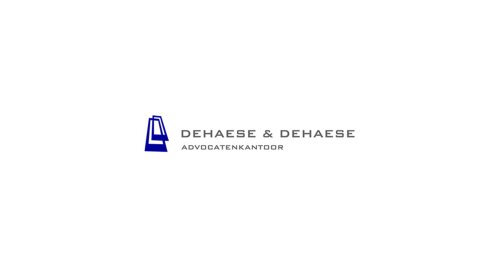Best Due Diligence Lawyers in Hasselt
Share your needs with us, get contacted by law firms.
Free. Takes 2 min.
List of the best lawyers in Hasselt, Belgium
About Due Diligence Law in Hasselt, Belgium
Due diligence is the structured process of investigating a business, asset, project, or individual to verify facts, assess risks, and confirm compliance before a transaction or strategic decision. In Hasselt, which is part of the Flemish Region of Belgium, due diligence commonly arises in mergers and acquisitions, private investments, financing, real estate deals, and regulatory compliance reviews. The scope typically covers corporate, financial, tax, employment, environmental, IT and data protection, real estate, intellectual property, permits and licensing, and litigation exposure.
Belgian transactions are anchored by national laws and EU rules, with regional layers in Flanders for planning, environment, and certain permits. Local practice in Hasselt also involves coordination with Flemish authorities for permits and environmental matters, and with Belgian notaries for real estate and certain corporate formalities. A well planned due diligence exercise in Hasselt is risk based and tailored to the size of the deal, the sector, and the counterparties involved.
Why You May Need a Lawyer
Lawyers help define the right scope, ask the right questions, and translate findings into practical protections in your contracts. You may need a lawyer in situations such as buying or selling a company or its assets, acquiring or leasing real estate, investing in a startup or scale up in Limburg, entering a joint venture with a local partner, refinancing with collateral over Belgian assets, outsourcing or vendor onboarding that requires compliance checks, or conducting internal compliance reviews before a regulator or auditor knocks on the door.
An experienced lawyer can identify required approvals and filings, interpret Belgian and Flemish rules that impact your transaction, and coordinate specialists such as tax advisors, environmental experts, and notaries. Just as important, your lawyer uses due diligence results to negotiate price adjustments, conditions precedent, warranties and indemnities, escrow or holdback arrangements, and closing mechanics that protect your interests.
Local Laws Overview
Corporate and commercial. The Belgian Companies and Associations Code governs company forms, governance, director duties, share transfers, and shareholder rights. Many deals in Hasselt involve private limited companies known as BV. The Code of Economic Law contains rules on market practices, consumer protection, product compliance, insolvency, and competition.
Competition and merger control. The Belgian Competition Authority enforces merger notifications for deals meeting Belgian turnover thresholds, in addition to possible EU filings. Competition and distribution rules under the Code of Economic Law also affect exclusivities, pricing, and non compete covenants.
Foreign investment screening. Belgium has an interfederal screening mechanism for certain acquisitions by non EU investors in sensitive sectors. Transactions may require pre notification and clearance. Parties should assess screening early to avoid delays to signing or closing.
Tax. Corporate income tax, VAT, withholding taxes, and registration duties can materially affect pricing and structure. The National Bank of Belgium hosts the Central Balance Sheet Office where annual accounts are filed, which is a key source for financial diligence.
Employment and social. Belgian labor law is federal. Works Council requirements apply from 100 employees and the Committee for Prevention and Protection at Work applies from 50 employees. Collective agreements, accrued benefits, and transfer of undertaking rules under CAO 32bis are core diligence topics.
Data protection. GDPR applies to Belgian entities and processing activities. The Data Protection Authority oversees compliance. Diligence should review data mapping, legal bases, processor agreements, international transfers, security, and breach records.
Anti money laundering and UBO. Lawyers and notaries have KYC duties. Companies must register beneficial owners in the UBO Register. Diligence should confirm accurate filings and AML policies for regulated entities.
Real estate and permits. In Flanders, the Omgevingsvergunning integrates building and environmental permits. Buyers should verify spatial planning status, zoning, easements, and any heritage listings. The notary will perform title and mortgage checks with the land registry. Energy performance certificates are typically required for sales and leases.
Environmental and soil. Flemish rules under the Soil Decree and VLAREM govern contamination and operational environmental permits. A soil certificate known as a bodemattest is generally required for land transfers. For properties built before 2001, an asbestos certificate is required for sales in Flanders. OVAM is the Flemish waste and soil authority. Environmental diligence often includes historical uses, permits, emissions, waste handling, and remediation liabilities.
Local courts and institutions. Disputes involving businesses are handled by the Enterprise Court, which has a division in Hasselt. Company information is published in the Belgian Official Gazette and the Crossroads Bank for Enterprises. Notaries formalize certain deeds and ensure fiscal and registry filings at closing.
Frequently Asked Questions
What is due diligence and when should I start it
Due diligence is a structured verification of legal, financial, operational, and regulatory facts. Start as soon as you have a serious interest, often right after signing a letter of intent and an NDA. Early scoping helps identify mandatory filings like merger control or investment screening that can impact timelines.
What documents are typically reviewed in Belgium
Corporate charters and shareholder registers, board and shareholder minutes, key contracts, financial accounts, tax filings and rulings, HR files and collective agreements, IP portfolios, licenses and permits, GDPR policies and registers, litigation and compliance records, real estate deeds and leases, environmental permits and reports, and insurance policies. Public filings from the Crossroads Bank for Enterprises and the Central Balance Sheet Office are also reviewed.
How long does due diligence in Hasselt usually take
Small deals can take 2 to 4 weeks. Mid market transactions often take 4 to 8 weeks. Timelines depend on data room readiness, number of sites in Limburg or elsewhere, required regulatory approvals, and responsiveness of counterparties and authorities.
Do I need a notary for my transaction
A notary is required for certain corporate deeds and for real estate transfers. Even where not legally mandatory, parties often involve a notary to handle title searches, mortgage releases, registration duties, and to ensure clean closing formalities.
What environmental checks are specific to Flanders and Hasselt
Expect a soil certificate, verification of Omgevingsvergunning status, review of VLAREM environmental permit conditions, and checks for asbestos and energy performance requirements. Historical site uses in Hasselt and broader Limburg can be relevant for contamination risk, particularly for former industrial or service station sites.
How does GDPR affect due diligence
Personal data must be accessed under an NDA with need to know controls and redactions where feasible. The buyer should review records of processing, lawful bases, processor agreements, DPIAs, security controls, and breach logs. Any transfers outside the EEA must have valid safeguards. Non compliance can lead to fines and liability that should be reflected in warranties and indemnities.
What is the difference between a share deal and an asset deal in Belgium
In a share deal you acquire the company with all assets and liabilities, subject to negotiated protections. In an asset deal you cherry pick assets and contracts, but may trigger consents, transfer taxes, and employee transfer rules. Due diligence focuses on different risk profiles and closing mechanics for each structure.
Are there Belgian merger control or foreign investment filings
Many transactions with sufficient Belgian turnover require merger notification to the Belgian Competition Authority. Belgium also screens certain acquisitions by non EU investors in sensitive sectors. Your lawyer can assess whether your deal triggers notification, the expected timeline, and how to align signing and closing.
Will the review be in Dutch or English
Hasselt is Dutch speaking. Many corporate documents and permits will be in Dutch. Legal teams can report in English, but certified translations may be needed for authorities or lenders. Ensure your advisors are comfortable working in both languages.
How are red flags handled in contracts
Findings are addressed through price adjustments, specific indemnities, escrow or holdbacks, conditions precedent, covenant remediation, insurance, or in some cases deal restructure or walk away rights. The severity and likelihood of each risk guide the chosen remedy.
Additional Resources
Belgian Competition Authority for merger control guidance. Data Protection Authority for GDPR information. National Bank of Belgium Central Balance Sheet Office for company accounts. Crossroads Bank for Enterprises for company registration data. Belgian Official Gazette for published corporate actions. OVAM for soil and asbestos rules in Flanders. Flemish Omgevingsloket for integrated permit information. Enterprise Court division Hasselt for business related proceedings. VOKA Limburg and LRM for regional business support and insights.
Next Steps
Define your objectives, key risks, and timing. Engage a Belgian lawyer with experience in Hasselt and your sector. Agree a clear scope and checklist that fits the deal size and budget. Put an NDA in place and set up a secure data room. Identify early any required merger, investment screening, or sector approvals to lock in the timeline. Order public extracts and certificates, and schedule any site visits or management interviews.
Use interim red flag reports to steer negotiations, then align transaction documents with the findings, including warranties, indemnities, covenants, and conditions precedent. Coordinate with a notary for real estate or corporate formalities and plan funding, signing, and closing mechanics. After closing, complete post closing filings, UBO updates, and any permit transfers. If you need help, contact a local lawyer who can assemble the right team of tax, environmental, and notarial specialists and who understands Hasselt market practice.
This guide is for information only and is not legal advice. For advice tailored to your situation, consult a qualified lawyer licensed in Belgium.
Lawzana helps you find the best lawyers and law firms in Hasselt through a curated and pre-screened list of qualified legal professionals. Our platform offers rankings and detailed profiles of attorneys and law firms, allowing you to compare based on practice areas, including Due Diligence, experience, and client feedback.
Each profile includes a description of the firm's areas of practice, client reviews, team members and partners, year of establishment, spoken languages, office locations, contact information, social media presence, and any published articles or resources. Most firms on our platform speak English and are experienced in both local and international legal matters.
Get a quote from top-rated law firms in Hasselt, Belgium — quickly, securely, and without unnecessary hassle.
Disclaimer:
The information provided on this page is for general informational purposes only and does not constitute legal advice. While we strive to ensure the accuracy and relevance of the content, legal information may change over time, and interpretations of the law can vary. You should always consult with a qualified legal professional for advice specific to your situation.
We disclaim all liability for actions taken or not taken based on the content of this page. If you believe any information is incorrect or outdated, please contact us, and we will review and update it where appropriate.









